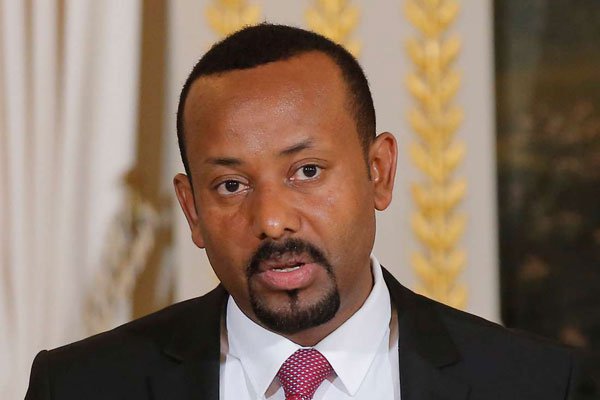One year on, tough times loom for Ethiopia’s Abiy Ahmed

BY:![]()
In his first speech as Ethiopian prime minister last April, Abiy Ahmed called for an end to the repressive, exclusionary governance that had plunged the country into turmoil.
It was a promise on which he is seen to have delivered dramatically, earning him both international acclaim and domestic popularity so great that his keenest supporters say he deserves a Nobel Peace Prize.
“Before Abiy came, our fear was that Ethiopia would descend into civil war,” said Hassen Hussein, a top official in the Oromo Democratic Front, one of the many banned groups welcomed back from exile.
Yet the new prime minister’s first year in office has also been marked by a surge in ethnic violence that has forced 1.8 million people out of their homes.
POLITICS
While Mr Ahmed has remade the public face of the ruling omnipotent Ethiopian People’s Revolutionary Democratic Front (EPRDF), diplomats and politicians say politics remains very much as usual at the local level.
“Many people, especially at the grassroots level, are asking, where is the change?” said Merera Gudina, a top opposition politician. “Both the depth and pace of change… people are really doubting.”
As Mr Ahmed enters his second year in office, he faces a new challenge: keeping his promise to make 2020 elections free and fair despite rising political violence.
The PM, who was sworn into power on April 2, 2018, took office following the resignation of his predecessor Hailemariam Desalegn, after more than two years of anti-government protests and growing discord within the EPRDF.
A former science minister, he comes from the Oromo people, Ethiopia’s largest ethnic group. He rose up through the military and intelligence services, reaching the rank of lieutenant colonel.
PERSONAL TOUCH
The 42-year-old won over Ethiopians with his rapid, dramatic reforms, often delivered with a personal touch.
He met publicly with newly-freed political prisoners and held repeated meetings with old foe Eritrean President Isaias Afwerki to negotiate a July 2018 agreement re-establishing relations following a bloody 1998-2000 border war.
“For the first time in the country’s history, he is negotiating with the opposition,” said Mr Gudina, who was jailed under Hailemariam, then released on the eve of his resignation.
But he worries whether the four parties that make up the EPRDF — and especially the old guard from the Tigrayan minority that dominated the coalition until Mr Ahmed’s rise — really support him.
“We are not sure the degree to which the EPRDF is committed,” he said.
At the local level, politics has changed little.
“The ruling party is the ruling party; the cadres are the same, the service delivery is the same,” Mr Gudina said.
SHOW-OFF
Those who have met the prime minister worry over his tendency to show off his accomplishments while revealing little about his plans to tackle the country’s challenges.
The PM made headlines in October 2018 by appointing a cabinet in which half the ministers were women. But critics say he has taken power into his own hands and sidelined government ministries.
“It’s a one-man show… it’s not a functional government,” one foreign diplomat told AFP, adding that among embassies, “a few eyebrows are now rising.”
Shortly after Mr Ahmed took office, a long-running dispute over land in southern Ethiopia’s West Guji and Gedeo zones erupted into ethnic fighting that forced nearly a million people from their homes.
Such violence continued through his first year.
ETHNIC CLASHES
Last September at least 58 people, mostly from minority ethnic groups, were killed on the outskirts of the capital Addis Ababa, while aid groups said in December that ethnic violence in western Ethiopia had displaced 250,000 people.
Analysts have blamed rising violence on a slackening of the tight control the EPRDF once maintained on regional security forces and administration.
The PM has touted his moves to improve media freedom — following in the footsteps of Hailemariam, who released several prominent jailed journalists — but instability threatens this progress.
Elias Kifle, who heads the online news outlet Mereja, believes Oromo police officers sanctioned the February mob, beating two of his journalists in the town of Legetafo.
“I considered it not only an attack on the media, but on the reform,” he said, adding that he does not blame the prime minister for the assault.
In a sign of the country’s apparent precariousness, officials in March postponed a national census, which was seen as a precursor to next year’s vote.
“Damned if you do, damned if you don’t,” Mr Hussein said of the elections. “With the level of polarisation that exists now, I’m not sure an election would do any good for Ethiopia and Ethiopians.”